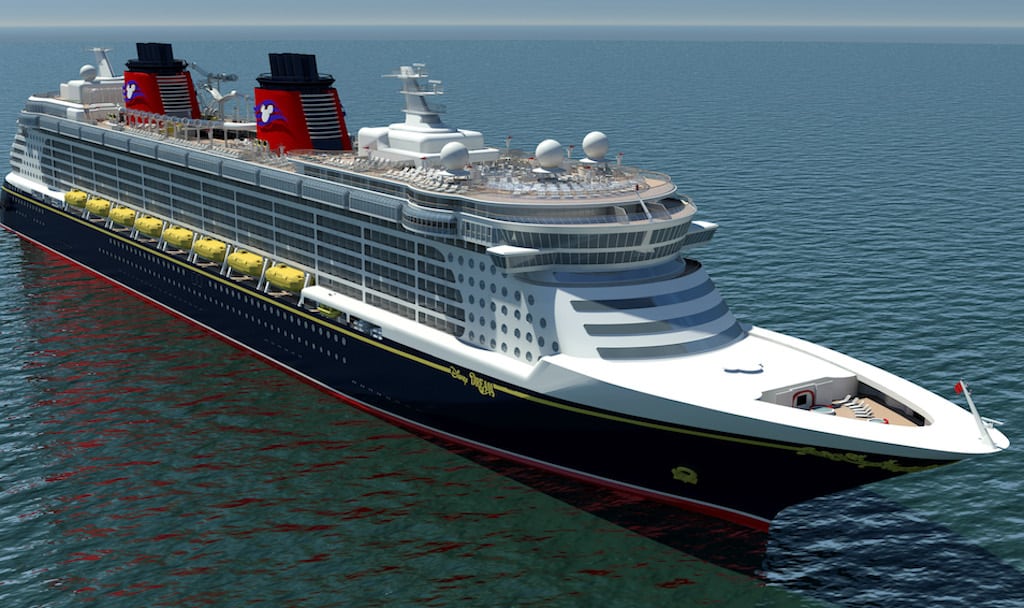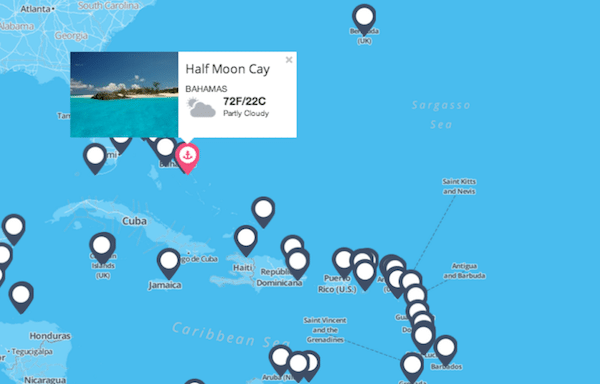Skift Take
If you thought social travel and trip-planning were hard, just consider online cruise booking, where travel agents and the phone are still the predominant tools.
There’s a reason that Carnival Corp. and Norwegian Cruise Line each state that travel agents still handle a majority of their bookings: Cruise booking can sometimes be so complex it makes wedding planning seem to be a mere walk around the promenade deck.
The existence of dozens of cruise lines, with several hundred ships in their motley fleets, is only the starting point. A ship like Oasis of the Seas has some 25 choices of cabin types, for example.
Then industrywide there are over a thousand ports to choose from, hundreds of onboard activities, thousands of shore excursions, scores of convoluted deck plans, and a mind-numbing number of restaurants and dining seatings to consider.
And, oh ya, then there also are the issues of deposits, and collecting final payments; choosing and booking flights, hotels and ground transportation for pre- and post-cruise stays, and coordinating all of this when the cruiser is traveling with family or as part of a larger group.
Online Cruise Booking
Various estimates put online cruise booking at 7% to 10% of the market, and it likely skews lower for longer sailings and luxury excursions.
With online cruise booking numbers as low as they are, there seemingly is so much opportunity in the sector. But the seas are littered with travel startups that over the past decade have tried and failed to make online cruise-booking the norm, or at least to dramatically increase the percentages.
You don’t see a huge amount of venture capital money pouring into the sector.
One of the newest companies to take a crack at it online-cruise booking is a bootstrapped Cruise.me, the inspiration of a group of UK, U.S., and Australia-based former cruise, finance and tech enthusiasts. It’s attempts to move more cruise activity online illustrates the plight of digital in a market where travel agents still have the edge.
Cruise.me is still in alpha-mode so there really isn’t much substantial to evaluate other than through some presentations, screenshots, and an interview with co-founder and CEO Stephen Chip.
The game plan is to transform the online cruise discovery, planning, and booking experience by eliminating extensive drop-down menus and fields, making search more intuitive by placing rich content on a map, and rendering the planning process more social.
“Many cruise lines and online travel agencies view social as a way to log in via Facebook or Twitter,” Chip says.
Cruise.me plans to “leverage the visitor’s social graph” in a more meaningful way, using Big Data techniques with parent tech company Abbey Labs powering the technology.
“This becomes collaborative by helping the visitor choose between many options and more immersive by sharing their cruise experience with family and friends before, during and after the cruise,” Chip says.
Remove the “cruise” from the equation and there are echoes of multiple failed travel planning startups. Not only does Cruise.me seek to simplify a tremendously complex process that others have failed at, but the startup also wants to make it social at the same time. Cruise.me is also hoping it will be able to partner with a large cruise agency for fulfillment.
Failing to do that “could have been one of the contributing factors that led to the demise of other startups in the space,” Chip says.
Change Will Come, But It Could Take Awhile
“We’ll see a move towards more online bookings, but it won’t happen overnight,” says Carolyn Spencer Brown, Cruise Critic editor-in-chief. “It’s not something that can be easily solved by a flashy site or online travel agency as the complexity comes from the options offered by the cruise lines.”
Cruise Critic provides a huge online forum for avid cruisers, and Spencer Brown says in a recent Cruise Critic Demographics survey 48% of respondents indicated they would book their next cruise online, and 52% would do so offline. These respondents are hardly representative of the general public.
Spencer Brown says cruisers who are very familiar with a particular cruise line “and understand the booking process, are likely to move to online booking with the overall trend for travel.”
Faraz Qureshi, general manager of Cruiseline.com, an informational and community site, thinks shorter cruises on older ships, where the cabin categories are fewer, may be ripe for more online bookings.
“I think longer cruises will continue to be booked by agents over the phone, especially on newer ships that have many more cabin choices,” Qureshi says.
“For example, Oasis of the Seas has more than 25 different cabin choices,” Qureshi says. “Imagine trying to sort through the options on your browser. Each has a different price, square footage and more.”
Cruise Lines Still Dependent on Travel Agents
Despite a drive to secure more direct bookings for themselves, it says a lot that when Carnival Corp. got itself into its current troubles following the Costa Concordia accident and the Carnival Triumph public-relations hit, it brought back former long-time CEO Bob Dickinson as a consultant to try and improve relations with travel agents in order to fill some cabins.
Charlie Funk, CEO of cruise agency Just Cruisin’ Plus, says Dickinson’s return to Carnival led to simplified rate programs for travel agents and the return of print brochures — which amazingly was still high on travel agents’ wish lists.
Another attraction of booking a cruise over the phone through a traditional travel agency or walking into a travel agency office, rather than booking online through an OTA, is that travel agents can often provide the cruiser with perks.
Funk says travel agents have access through the cruise lines to onboard amenities otherwise unavailable to the general public, and can place travelers on smaller, private shore excursions instead of piling them onto buses for sightseeing outings that the cruise lines may have arranged.
To some extent — with one important caveat — travel agent bookings through the cruise lines are getting more “electronic,” meaning reservations are being made through the global distribution systems and through cruise lines’ agency websites sites, such as Princess Cruises’ Polaronline.
In fact, in 2012 Carnival Corp. stated that 75% of the bookings it gets from travel agents are made electronically.
“It reflects that the travel industry, including cruise lines in general have shifted heavily toward electronic bookings for all sectors, including the travel agency community,” says Carnival Corp. spokesperson Roger Frizzell.
But, then Frizzzell adds: “It is a more effective way of doing business for all of us, although it sometimes starts with a simple phone call into our travel agents.”
You can bet that phone calls between travel agents and cruise lines don’t take place just sporadically.
Whether it’s for cruisers or travel agents, online cruise booking from beginning to end is still a long way off, and the telephone still rules.
The Daily Newsletter
Our daily coverage of the global travel industry. Written by editors and analysts from across Skift’s brands.
Have a confidential tip for Skift? Get in touch
Tags: carnival, travel agents
Photo credit: The Disney Dream from Disney Cruise Line. Disney/Atlanta Journal-Constitution/MCT

